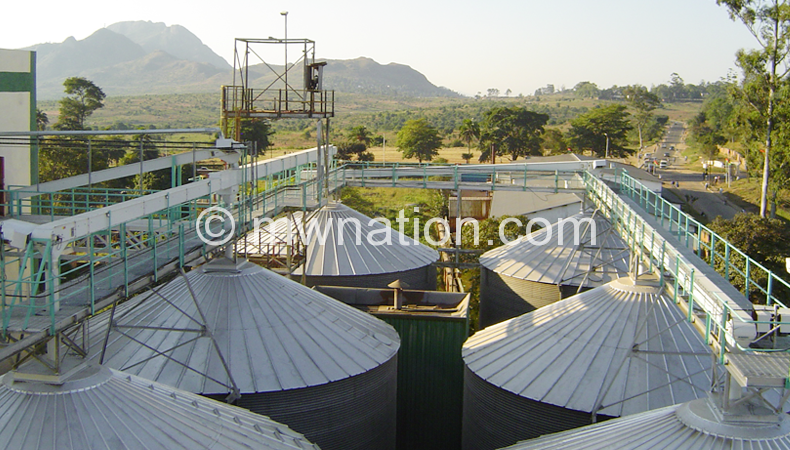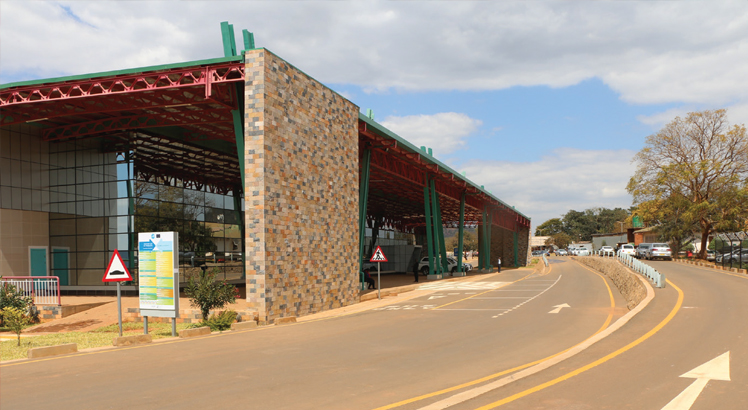2 000 risk losing jobs in soap industry
Thousands of jobs in the soap manufacturing industry are on the line if government does not act swiftly to remove the value added tax (VAT) imposed on soap noodles.
Government imposes 25 percent import duty and 16.5 percent VAT on soap noodles (raw materials for soap manufacturing) which Malawi Revenue Authority (MRA) refunds later.

Ironically imported soap is zero-rated for both duty and VAT.
Former president the late Bingu wa Mutharika once removed VAT on raw materials for laundry soap, but the Peter Mutharika administration reinstated it last year.
However, soap manufacturers have complained that the reintroduction of VAT on soap noodles has negatively affected the industry as MRA takes ages to refund them, which leads to a shrinking of their working capital.
Bakhresa Malawi Limited financial controller, Chalam Kattamuri, said the soap industry is currently recruiting over 2 000 direct workers nationwide but some of the local manufacturers may have to downsize, close shop or shift to alternative industries to keep their companies afloat.
Kattamuri said his company was last year forced to reduce production because MRA could not make a refund of K800 million (US$17 978) to the company at once.
In an interview on Tuesday, HMS Foods and Grains Limited director, Venkat Raman Danda, said while MRA may have valid reasons for reintroducing this VAT as government needs revenues to finance development projects across the country, he feared the decision could be at the expense of creating employment opportunities for the its citizens.
Danda said with the reintroduction of the VAT, the cost of producing soap has gone higher than the cost of importing the finished product.
This, he noted, encourages direct importation of finished soap rather than producing it locally, which may hinder local companies from creating job opportunities.
He explained: “VAT on soap noodles has significantly reduced their working capital and we’re forced us to borrow from banks to keep companies afloat. Millions of our working capital gets stuck at MRA because it takes ages for the Customs and Excise to refund us, which forces us to borrow from banks at high interest rates merely to finance the VAT.”
Danda, whose company has reduced by over 90 percent the volumes of soap being produced per day, said soap manufacturers have turned to transfer the cost onto the consumer, thereby increasing the prices of locally made soap higher than the imported ones.
He stressed that there is a general feeling among soap manufacturers that they could be making more profits if they were producing/manufacturing from other countries such as Kenya and Mozambique — where the cost of production is said to be relatively cheaper — and export the finished products to Malawi.
Kattamuri added: “We used to employ more people and could produce more soap in a day, but we have since reduced workforce and tonnage of the soap produced per day. We’re roughly producing about three tonnes a day from about 10 before VAT on noodles was reintroduced.
“Hence, our appeal that government should consider levelling the playing field for both local manufacturers and importers by removing VAT on soap noodles.”
Late 2014, the manufacturers, including Bakhresa Malawi Limited, Candlex Limited, HMS Foods and Grains Limited and Rab Processors Limited wrote ministers of Finance, Economic Planning & Development and Industry & Trade, proposing the removal of VAT on raw materials imported for the manufacturing of soap.
They contended that the removal the VAT [on noodles] “will not result in any loss of revenue to the country since MRA still has to refund the collected VAT to the respective companies”.
“On the contrary, there’ll be sizeable cost savings on administration, import substitution, local value addition, more employment opportunities being created leading to increased collected of PAYE [pay as you earn] and income tax,” reads the letter in part.
They also expressed concern over the delay sby MRA to process their refunds under the Industrial Rebate Scheme.
Former Secretary to the Treasury, Newby Kumwembe, responded: “We would like to assure the industry that with the new system that the Minister of Finance, Economic Planning and Development announced in the budget statement, MRA should be able to process bonafide refund claims timely.”
Minister of Trade and Industry, Joseph Mwanamveka, was reportedly abroad in the week, but Ministry of Finance, Economic Planning and Development spokesperson, Nations Msowoya, said government was yet to address the concerns.
“We acknowledged receipt of their concerns and promised that we would review them. We’re reviewing their concerns because government would not want to suffocate local companies,” said Msowoya.





